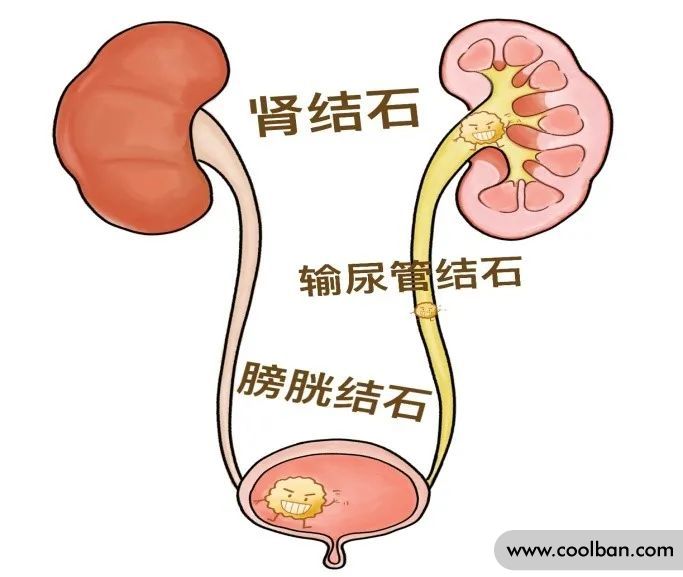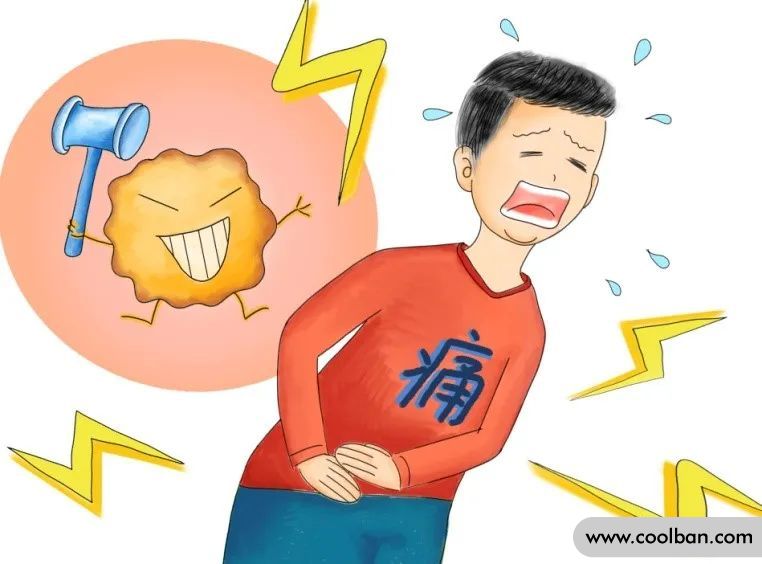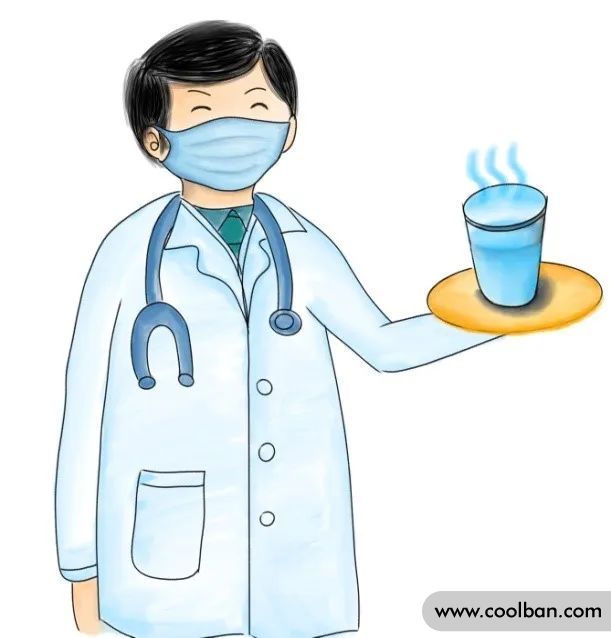Symptoms of Urinary Stones
Has anyone around you had urinary tract stones, or even you have experienced a urinary tract stone attack yourself: sudden severe low back pain (often sudden colic caused by factors such as strenuous exercise), which may be accompanied by nausea and vomiting , and/or hematuria with symptoms of bladder irritation.
Today, let's talk about this urinary system stone that can make people roll around when it hurts.
First of all, urinary system stones refer to : stones that occur in the kidney, ureter, bladder and other urinary systems, are common urinary system diseases, and can be caused by metabolic abnormalities (urine pH, high blood calcium, high urinary calcium etc.), urinary tract obstruction or infection, and some drug factors, among which kidney and ureteral calculi are the most common.

Secondly, let's take a look at the typical symptoms of urinary tract stones?
Pain: is the most typical symptom of kidney stones and ureteral stones, most of which are sudden and severe pain that is unbearable, with paroxysmal attacks, located in the waist or upper abdomen, and can radiate along different parts. In the case of ureteral calculi, symptoms of bladder irritation (frequency, urgency, dysuria) may also be present.

Hematuria: Usually it is microscopic hematuria, and a few people will have visible hematuria. The amount of hematuria is related to the degree of damage to the urinary tract mucosa caused by stones.
Nausea and vomiting : When ureteral calculi cause urinary tract obstruction, the ureteral lumen and wall are locally dilated, spasm and ischemia. Nausea and vomiting due to the common innervation of the ureter and the gastrointestinal tract.
Bladder irritation symptoms : If stones are accompanied by infection, or stones in the ureteral bladder wall, bladder irritation symptoms (frequency, urgency, dysuria) may be present.
Among them, according to the different parts, the clinical manifestations are also different: the typical symptoms of bladder stones are sudden interruption of urination; the typical symptoms of urethral stones are dysuria, dripping urination, accompanied by dysuria.
Then, how to treat urinary system stones?
First of all, If severe renal colic occurs suddenly, you should go to a regular hospital for medical treatment, avoid strenuous exercise, and mainly treat spasm and pain.
Secondly, If the stone reaches the level that requires manual intervention, it is necessary to remove the stone as much as possible, and choose the method of drug expulsion, extracorporeal shock wave lithotripsy and surgical stone removal according to the size of the stone.
In our daily life, what problems should we pay attention to to improve or even avoid the formation of urinary tract stones?
In the diet, it is necessary to avoid excessive intake of one of these nutrients, especially avoid excessive intake of foods high in purines or fats. Maintain nutritional balance, increase the intake of fruits rich in citric acid; limit the intake of oxalic acid in the diet; limit the intake of sodium salt; increase the diet of whole grains and fiber.
Urinary tract stones have particularly strict requirements for drinking water: increasing water intake can increase urine output, thereby reducing the supersaturated state of urinary calculi components and preventing the recurrence of stones. It is recommended that the daily water intake be above 2.5-3.0L, and the daily urine output should be kept above 2.0-2.5L. Regarding the type of drinking water, it is generally considered that non-dairy liquids with low oxalic acid content are suitable.

In terms of exercise: avoid prolonged lying or sitting, and exercise appropriately to prevent stone deposition.
In our daily life, we must also develop good living habits, and pay special attention to not holding back urine and not drinking enough water; we must also maintain a positive and relaxed state of mind.
Stones in the urinary system seem scary and serious, but in fact, as long as we maintain good eating habits and living habits in our daily life, regular physical examinations and reexaminations; seek medical attention in time in the acute stage; and surgical intervention if necessary, defeating it is not a problem!
